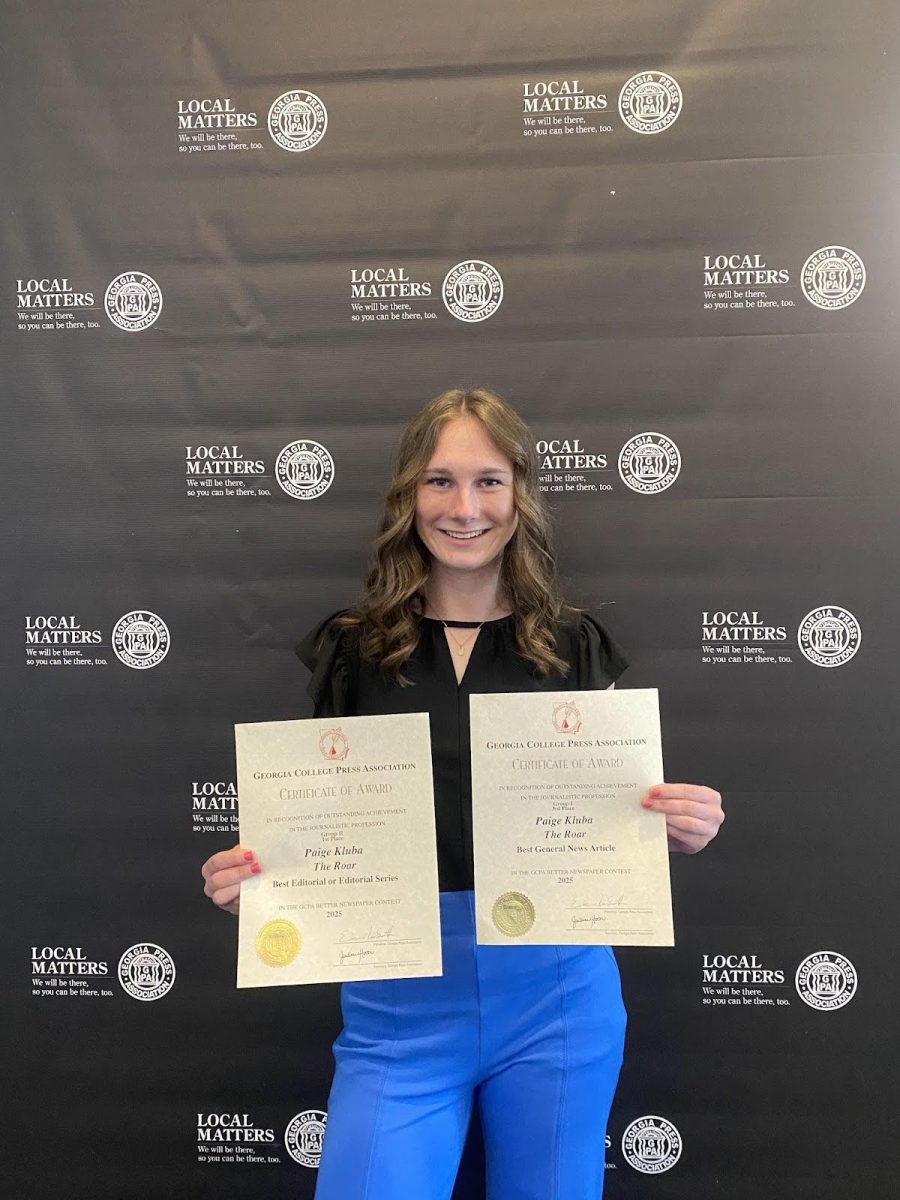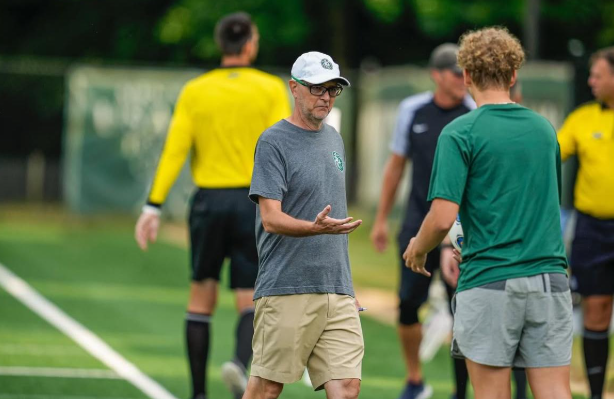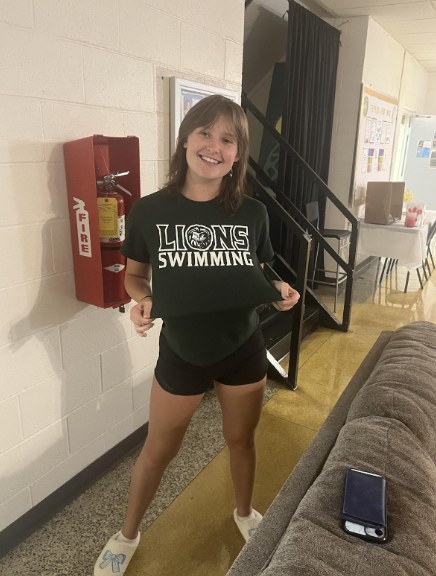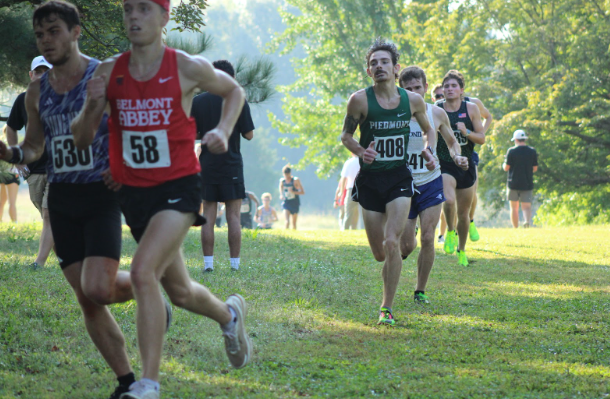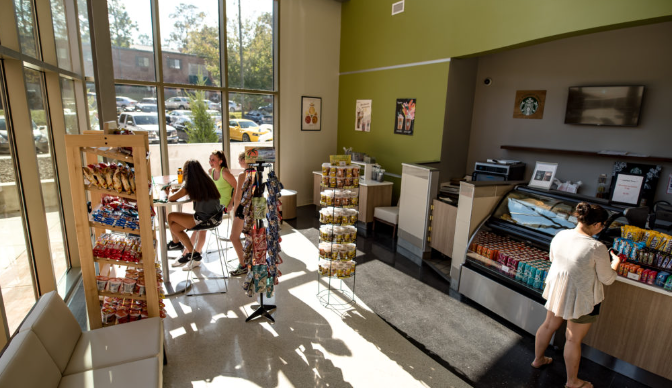For Michelle Cates, a junior mass communications major and member of Piedmont University’s track team, hair is more than just a style—it is a testament to her identity, resilience and personal journey. From facing early criticism to embracing bold colors and self-expression, Cates has found confidence in her individuality both on and off the track.
“It means a lot to me to be able to have the confidence to express myself through my hair,” Cates said. “As a kid, not a lot of Black people around me had locs, much less women, so I faced a lot of problems with being compared to a man. To grow past that and be comfortable with my hair means a lot.”
Cates has dyed her hair numerous colors over the years, with red being her favorite. The process of selecting a new color is often spontaneous, sometimes resembling a scientist experimenting with a new formula. Her hair journey is not just about aesthetics, but also about reclaiming her identity in a society where Black hair is often scrutinized.
Beyond personal expression, Cates’ hair serves as a marker of her journey as an athlete. She has worn her locs since she was five years old but is considering cutting them in the near future for a fresh start.
“My hair has represented my life journey in a way,” she said. “That’s why I’m looking forward to cutting my locs off so I can start completely fresh. I’ll get locs again at some point, but being a bald baddie could be fun.”
Cates also emphasizes the role of hair in her athletic performance. She believes looking good translates into racing well. “I’m a look-good, race-good type of person,” she said. “In high school, I only wore pigtails when I raced, and in my last two years of college, I always had my hair done.”
However, not all interactions about her hair have been positive. At a track meet, an official touched her hair twice without permission, an experience that left her feeling uncomfortable. Fortunately, her coach, a Black woman, addressed the situation with empathy and support.
“My coach later came up to me and asked me how that made me feel and if she could do anything to make me feel better,” Cates recalled. “That really made me value having a Black woman as a coach because she understood exactly how I felt in that moment.”
Maintaining vibrant, colored locs as a student-athlete presents challenges. With training, competitions and schoolwork, finding time for hair maintenance is difficult. Cates uses semi-permanent dye, but the combination of sweat, rain and humidity accelerates fading, requiring frequent upkeep.
“Athletes don’t get a lot of weekends to themselves, so having to put aside a day for hair maintenance is kind of irritating sometimes,” she said.
Cates is also candid about the pressures female athletes face, from societal expectations to the mental strength required to navigate the world of sports. “As a female athlete, you’re expected to be successful, pretty, humble, fit but not too muscular, and balance the rest of your life on top of that,” she said. “Since high school, I decided I didn’t care about any of that. I love the muscles I have because they show how strong I am. I don’t care if you think I look like a man or a linebacker, I put in a lot of work to be strong so damn right you’re gonna see these muscles.”
Her confidence and self-acceptance serve as an inspiration to others, particularly young Black women who may struggle with societal pressures regarding their hair and identity. “I hope I inspire people to have pride in themselves and be themselves unapologetically,” she said. “Radically accepting every version of yourself and seeing even the parts of yourself that you don’t like is so incredibly important.”
One of her most personal projects, a short film titled Spectacle, explores the visibility of Black women in media and society. Inspired by her experiences growing up without seeing characters who looked like her, Cates used her film to shed light on the unfair judgments Black women often face.

“The title comes from the idea that Black women are commonly seen as spectacles in society,” she explained. “From their body types to their hair, fashion, and personalities, Black women find themselves unfairly judged a lot. I wanted to highlight that through my documentary.”
The screening of Spectacle was a moving experience for Cates, as many of her friends resonated with its message. Seeing their emotional reactions reaffirmed her impact as a communicator. “I thought, ‘woah I really reached the right audience, and it made them feel better,’” she said.
Looking ahead, Cates is excited for new changes, whether in her hairstyle, personal growth, or athletic achievements. She remains committed to embracing change, challenging norms and inspiring others through her journey.
“The words you tell yourself are the house that you live in,” she said. “You are you, and that is enough, and if others cannot accept that, those are not the people for you.”



